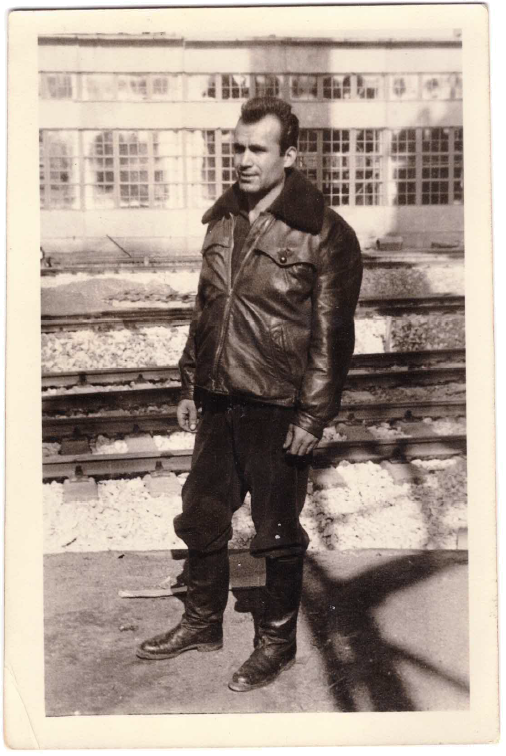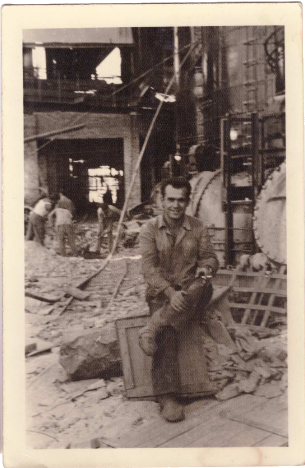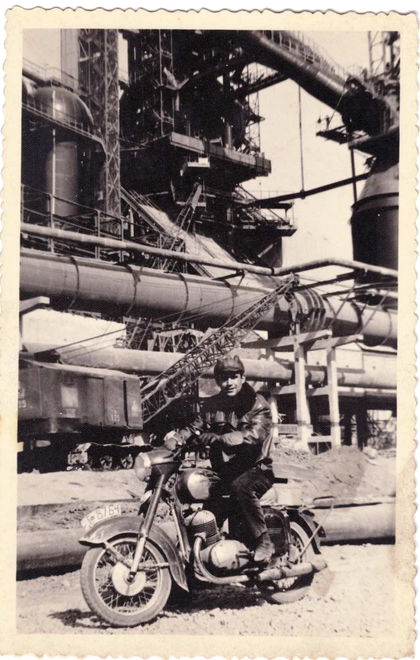3 years in a camp and prisons
Offence: Agrarian, member of the opposition

I do have an opinion on this matter and I say, I forgive them. Blood doesn’t wash blood away. Dialogue does.
Tsvetko Georgiev was born on February 26, 1935, in the village of Potop, near Elin Pelin, in an agrarian family, as the youngest of three brothers. His father was killed in Macedonia in an exchange of fire with communists allied to Josip Tito. Despite the extreme poverty the family experienced after the death of his father, they were declared to be kulaks. Tsvetko was expelled from the technical high school because his father was labeled a fascist. He had to start work at the age of fourteen in order to help his mother with the family’s upkeep. While a student in the technical high school, he became friends with other young people who had also been denounced as children of kulaks. At their gatherings they would discuss plans for a struggle against the totalitarian regime – the so-called conspiracy. They began their opposition work as a secret organization which they named after the political leader and leader of the opposition, Nikola Petkov.
In a scuffle with communists in a nearby village in 1953, the local Communist Party secretary was killed, and members of Tsvetko’s organization were arrested. Tsvetko wasn’t present at the scuffle, but he was also immediately arrested. This was followed by a long and grueling investigation in Sofia Prison, after which, in April 1953, Tsvetko stood trial along with his companions. Initially, the prosecutors asked for the death penalty for “armed struggle against the power of the people”, even though no weapons were found. One of his companions was executed, another was sentenced to twenty years of prison, of which he served seventeen, while Tsvetko was sentenced to twelve, which were later reduced to five years of imprisonment.
But of course, many people gave in… we’d say, “This one is a declaration-signer.” What does a declaration-signer mean? A person who has agreed with the [communist] regime and he is giving in, he’ll serve them… But, to the person who gave in, who signed the declaration to collaborate, they reduced his sentence, released him, and he’d go and study or work.
In October 1953 Tsvetko was interned in Belene, where he was sent to Site 2 and was assigned to perform the hardest labor – working on the dike and in the agricultural areas of the camp. He developed a serious case of tuberculosis and in May 1955 he was sent to the prison-hospital in Kyustendil where he remained for six months. From there, he was transferred to the prison in Pazardzhik, from where he was released at the end of July 1956.
After his release, Tsvetko didn’t have much choice in the work he was able to do, as he was only allowed employment in the heavy industries. He was sent to the labor corps for his two years of mandatory military service, he then worked at the port of Bourgas, followed by the mines and coal furnace facilities in Kardzhali, Pernik, Gorna Oryahovitsa.
After the fall of the communist regime, he was an activist of the reinstated Bulgarian Agrarian National Union – Nikola Petkov, and was an advisor to its leader Milan Drenchev. He was a deputy chairperson of the Union of the Repressed by Communism. In the years after 1989 he established and managed a small private petrol station, and as a pensioner he looks after an orchard with some 1,000 trees.
These gatherings of the repressed by communism were organized to show society how it was [in the camps]. The speeches were made by people who had been in the camps. And I, even though I had been to prison, I never spoke. I always wanted the people with the longer sentences, the more tormented ones to speak, always. And it was those people that pushed themselves forward, collaborators [of State Security], “Well, it was what it was, now, you know, it’s a different time.”


4 years and 4 months in labor camps
Offense: anarchist
9 months under arrest and in a camp
Offense: son of a provincial governor in the Kingdom of Bulgaria
42 days in the Sunny Beach camp near Lovech
Offense: "hooligan", son of a member of the opposition
9 months under arrest and in a camp
Offense: an attempt to escape from Bulgaria
2.5 years under arrest and in a camp
Offense: participant in the anti-communist resistance
3 years under arrest, in a camp and prisons Offense: Agrarian, member of the opposition
3 years and 1 month under arrest and in and political prison
Offense: participant in the anti-communist resistance
In 1961, Zheko was sentenced to death for resistance to the communist authorities. Subsequently, his sentence was changed to lengthy imprisonment.
In 1964, Zheko Stoyanov received an amnesty and was released from the Stara Zagora prison. In order to earn his living, he did hard manual labor, working as a porter, a painter on construction sites, and a miner. For twenty-two years he worked in underground mines.
After the democratic transition of 1989, Zheko Stoyanov entered politics and in 1997 he was elected a member of parliament for the United Democratic Forces. At the age of sixty, he completed a degree in economics.
2 years and 8 months under arrest and in political prison
Offense: dissemination of anti-communist leaflets
After 1958, Alfred was granted the right to travel to Bulgaria, where he spent his summer holidays. There he got to know the new reality of the country and met other like-minded individuals who were dissatisfied with the regime and with whom, in 1968, he distributed printed leaflets against the Communist Party.
Arrested on August 28, 1968, for the distribution of these leaflets, Alfred was sentenced as a spy to fifteen years in prison, of which he served three in the Stara Zagora prison. Following diplomatic pressure, he was released on April 30, 1971, and left Bulgaria. He later returned to illegally take his beloved out of the country, succeeding through a complex and risky plan.
After settling in France, Alfred actively collaborated with groups fighting for human rights in Bulgaria and helped illegally take other political prisoners out of the country. He currently lives in Sofia.
Four years in camps and in forced resettlement
Offence: disagreement with the change of Turkish names to Bulgarian




